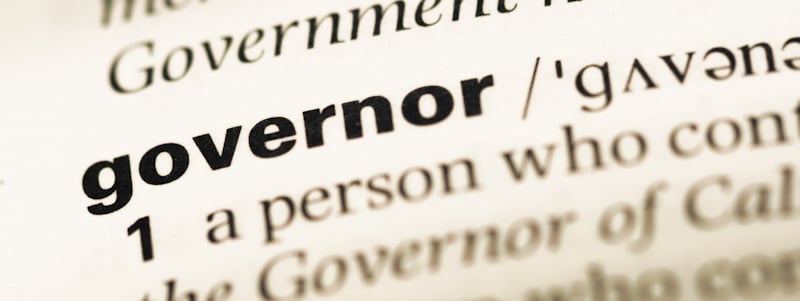From the surface, the rules of English capitalization seem quite simple. Easy enough. But when you immerse/apply yourself in the world of “capitalization: dos and don’ts” it gets pretty intricate not to say chaotic!
We all are familiar with the universal ‘proper nouns are always capitalized’ rule. However, there’s more to it than meets the eye. On this page, we’ll talk about when to capitalize the word “governor” and when not to. The rules that you need to keep in mind, in which circumstances you use upper-case and when you are exempted from said rules.
According to English capitalization rules, proper nouns are always capitalized. Therefore, when referring to a person with the title Governor, always capitalize the word. So, if Governor is intended to be used for a specific person with a title then the rule of thumb is to capitalize it. If it is meant to be used as a common noun, then it should be written in lowercase.

What is a ‘governor’? A governor is an official appointed to govern a region, state, or town who is considered the head of a public institution. Some may use other terms based on the region where they live such as administrator, chief, head, or mayor.
It’s a bit confusing we know! That’s why we’ve gathered all there is, the information and basics that will help you understand why and when we capitalize words.
Where Does The Word “Governor” Come From?
If we think of the closest connection to the word “governor” in the English language is the verb “to govern”. However, the word origin dates further back in both Latin and French languages.
In Latin, similar to English, it comes from the verb “gubernare” and from that verb the noun form originated, “gubernator”. Now, in French the noun form is found independent from the verb, and it is “governeour”.
Rules on When to Capitalize “Governor”
It is impossible to provide rules that cover every conceivable problem in capitalization, by considering the purpose served by the term “governor” it is possible to attain a certain degree of uniformity in the text. Below we have mentioned some rules that you need to bear in mind when writing English and using honorific titles. If they apply to the context in which you are about to use the word governor then follow them and capitalize the term.
- Capitalize the first word of the sentence. If your sentence starts with governor use capital G.
- Governor is willing to do it if he asks.
- Governor will help in solving the issue.
- If you use it as a proper noun to address a specific person with a title then capitalize it.
- Governor Arnold Schwarzenegger.
- Governor Louis.
- If it comes after a colon and is used as a proper noun then you need to capitalize it.
- There is only one man who can listen to you: Governor.
- Capitalize the title of high ranking government officials when it directly precedes his or her name. In this case, the term Governor is capitalized.
- Governor Connelly, Governor Louis, and Governor Martinez will attend the meeting.
- He made clear remarks on Governor Cuomo.
- Governor Wanda succeeded the 10th governor.
- Capitalize the word when you are directly addressing the person with the title.
- Would your decision help the immigrant crisis, Governor?
- We need your response immediately, Governor.
- Please tell us about your take on the new law, Governor.
- Good day, Governor.
- In certain nonacademic texts such as press releases, bills, or letters the word Governor may be capitalized. Usually done as a sign of respect by the organization. Other people are exempted from this.
- The bill has the Governor’s name on it.
- The budget file was signed by the Governor
- If ‘former’ is not used but you are talking about a retired governor uppercase the word.
- Former governor Nelly lives in the area.
When Not to Capitalize the Word “Governor”
- If it is used as a common noun, then you need to lowercase it.
- The governor will announce his candidacy in the meeting.
- The governor of the Mid-Atlantic States met today.
- All five governors were in presence.
- Do not capitalize if it comes after a colon (:) and is meant to be nonspecific.
- I have only one rank in mind for him: governor.
- When you use ‘the’ before the term governor, do not capitalize it.
- The governor has answered all the required questions.
- The governor is said to have retired.
- The governor was a good man.
- In certain cases to achieve greater distinction or to adhere to the authorized form ‘governor’ followed by ‘the’, is capitalized.
- The Governor of Texas has plans regarding the issue.
- If the word governor comes after ‘former’ then do not capitalize it.
- The former governor has passed away.
- Do not capitalize the title ‘governor’ if it is used instead of their names.
- All governors are expected to attend.
- The governor called for a special task force.
- The governor will address the journalists.
- Do not capitalize if you are mentioning ‘governor’ in partial quotes.
- He told us that his city’s ‘governor was good’.
- If you use a title as though it were a part of the person’s name then you do not capitalize the term.
- During the Civil War, John Doe was the governor of New York.
- Sam Jones was the best governor this state had.
Special Cases / Exceptions
When faced with the dilemma of titles followed by the name on the signature line, choose a method that makes the writing for the reader or the person addressed, more consistent. Make sure that whatever you choose ‘G’ or ‘g’, it has to go with the flow.
- Sincerely, John Louis, Governor.
- Sincerely, John Louis, governor.
In Both examples “governor” is used correctly. This is because it is not at the beginning of a sentence and because the person signing is said “governor” so he is in the liberty of capitalizing or not his own title.
According to both AP and the Chicago Manual of Style, only capitalize the term governor when immediately preceding a name.
There are exceptions when you can use lowercase letters, but these exceptions lead to more arbitrary exceptions and are then applied for every title imaginable. This can confuse some people. Some stick by this rule while some bend around it.
Sometimes you have, what we call an ‘ego problem’ in which the person with the title requires you to capitalize his title even when there is no need.
Ever heard of capitonyms? These are words whose meaning changes based on whether or not they are capitalized. Capitonyms can include nouns, verbs, or adjectives.
If you want to emphasize the word governor but want to use it as an umbrella term then use capital ‘G’. This usually occurs when opinions are expressed. Some people will uppercase the word while some don’t. It is a personal preference. If you don’t want to put stress on it, then by all means go ahead and use a minuscule ‘g’!
- All Governors are the same: deceitful and corrupt.
- All governors are the same: deceitful and corrupt.
General Rules for Capitalization
Generic titles are not capitalized in the English language. Unless the title is being used as a direct address then capitalize it.
Civil titles or military titles are often capitalized when used in the text by the organization or government with which they are associated. In formal academic writings, these titles are mostly capitalized only when used as a part of the person’s name. When using such terms generically we do not capitalize them.
- Do you want to be a governor?
- The governor is waiting.
Honorific titles and respectful forms of address are capitalized in any type of situation. Exceptions are there, understand the context or situation in which you applied “governor” and then make the decision, whether you want it capitalized or not.
Help When Needed
If all that is mentioned in this article still goes over your head then you’ve got a problem at hands! No need to flounder about because grammar checking sites have got your backs covered. Grammar rules are brain-frying, if you have unknowingly missed capitalizing some words go to the internet just search ‘grammar sites’. They can be an immense help!
Conclusion
You might think if it is a title then why not just capitalize the word and be done with it? That’s where you are wrong! Capitalization or general grammar rules when writing a language need to be observed. If not, you are indirectly tempting the grammar fanatics to do what they do best, look for errors, and fix them all right away.

Plus if you want to pursue a writing career (journalist, translator, or freelancer) you need to acquaint yourself with these trivial things because they are considered important. If that doesn’t deter you from not following the rules, maybe the automatically red underlined words by the computer will! They do slow us down because we need to check why they are wrong but they are a necessary feature that keeps us all in line.
We have provided a comprehensive view on when and when not to capitalize “governor”. All questions that come to one’s mind when using the word governor have been kept in mind and answered accordingly and precisely.
Shawn Manaher is the founder and CEO of The Content Authority. He’s one part content manager, one part writing ninja organizer, and two parts leader of top content creators. You don’t even want to know what he calls pancakes.


